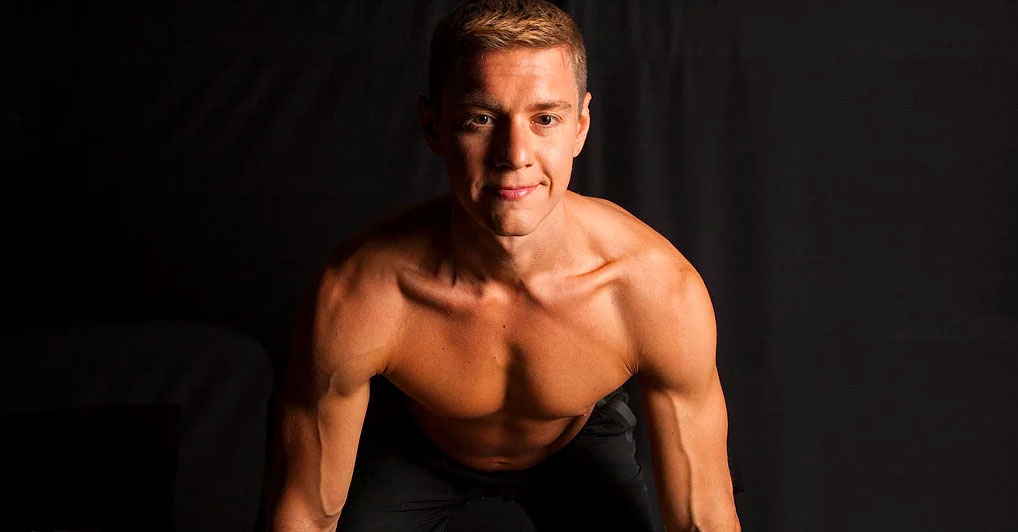Something about this time of year makes me reflective, so I compiled a list of 14 things I have learned, discovered, or relearned about myself and the world during this last year. Items are in no particular order. Your feedback and comments are welcome.
1. Your body wants to be healthy, but not necessarily fit.
I believe bodies naturally seek balance and integration. A healthy body moves well, feels good and has sufficient strength and endurance to make it through the day. But your body could care less about running 26 miles, squatting 300lbs or most other fitness PRs. You have to push hard to achieve these feats because your body won’t. That’s why they’re called feats; they’re displays of athleticism contrived by human minds. Human bodies, on the other hand, simply want to survive and reproduce (this is the biological definition of “fitness” remember). While ‘health’ and ‘fitness’ often get lumped together, the former is about quality of life without disease, while the latter is typically synonymous with strength, stamina and athleticism. There is meaningful overlap, but training for one may or may not benefit the other.
2. Relationships need friction; they are opportunities for growth.
This is age-old wisdom, but moving in with my girlfriend brought this to my attention. When you hit a rough spot, don’t run away. If you can sit with the discomfort of the situation, and perhaps some shouting or erratic emotions, in every conflict there is a wonderful opportunity to grow and deepen. Usually both people hold grains of truth that require further investigation. The challenge is creating a safe enough space to dig deeper and really understand each other’s perspectives.
Borrowing a notion from A.H Almaas, I like to think of relationship as a pearl in an oyster. Each of us possesses a pearl that is the sum total of all we bring into the world. How do you get a pearl to shine brighter? You need to polish it. Polishing happens when life provides friction. Within a supportive context, this friction helps us to mature and develop. So the next time you’re caught in relationship woes, remember it is the grit in the oyster that makes the pearl.**
3. Apply the 80:20 principle to cooking meals and your body will thank you.
If you’re not familiar with Pareto’s 80:20 principle, it basically states that 80 percent of your outcomes come from 20 percent of your inputs. In other words, a few things you do have a disproportionately large effect on the results you get. One of those things that produces dramatic results across all domains of wellbeing is cooking. Enough has already been said about this topic by Mark Bittman (e.g. “The Truth about Home Cooking”). My approach is to use the 80:20 breakdown as a guideline for lasting health. Simply, prepare and cook 80% of your meals at home. The other 20% do as you wish. This year I’ve stepped up the number of meals I make for myself and my body has never looked or felt better.
4. You don’t have to shop at the same supermarket all the time. [corollary to #3]
In other words, to maximize your budget, health and culinary pleasure, don’t just be a savvy shopper in the grocery store, be a savvy shopper between grocery stores. In many parts of the world, there aren’t supermarkets, there are just markets. Consolidating everything in one place certainly adds convenience. The trade-off is allowing one big-box retailer to control your food supply.
I’m fortunate enough to live within a few miles of a Trader Joe’s, a Whole Foods, a Market Basket, a gourmet meat shop, and dozens of ethnic markets. I understand not everyone has this accessibility, but for those that do, rather than get caught in routine of shopping only at one place, use all the grocery stores for their comparative advantage. I’ll head to Market Basket for pantry staples, Trader Joes for prepackaged frozen items, Whole Foods for high quality seafood, and so on. [The trick with Whole Foods is to buy what’s on sale so you’re not blowing your whole budget.] This approach keeps my kitchen filled with a diversity of foods and saves me money too!
5. Self-employed life cost at least 15 % more than you thought.
If you’re a regular employee, a certain percentage of your paycheck is withheld for federal taxes. Unfortunately, for the freelancers and independent contractors of the world (i.e. myself), that money still has to be paid to the federal government. So even if I charge “X” dollars for personal training, I actually only keep a percentage of that after taxes.
I don’t have a problem with paying taxes. I’m thankful to have streets, schools, social security and other safety net programs. I have a problem letting go of money that was once in my pocket. It’s called loss aversion, and it is a univeral human trait: losing something we once had is painful so we avoid it at all costs. Due to this psychological quirk, it’s more difficult to have to payback government taxes than getting them taken out of the paycheck in the firstplace.
I now compare self-employed life like to going to a restaurant and realizing the menu is 20% more expensive than the prices listed. It’s not something we naturally do, but it actually makes sense when we consider we will eventually pay tip on the meal. Unfortunately, no one ever told me to think this way when I decided to become self-employed. I wasn’t always dilligent about remembering I owe the government money. Take-away lession: Practice incorporating taxes into my pricing and financial decisions for 2015.
6. Your body is probably all F*#$&+!^ Up.
You may not feel bad or even know there’s something askew, but pretty much everyone is unbalanced. You may have crappy posture, limited range of motion, joint dysfucntion, or compensations for poor movement patterns. I rarely come across a person who has really developed and mastered foundational movements, especially when an external load is involved. Most people favor one side (usually their right), lack anterior core control and shift faulty movement patterns around from one muscle or joint to another. Don’t even get me started on the detrimential effects of prolonged sitting.
Basically everybody could use some bodily awareness and technical movement work. We need to go back and think about foundational movements (e.g. squating, hinging, crawling, etc.) and how we breathe. Moreover, we need to be teaching these things in school. By sacrificing PE class to save money and focus on test scores, we are seting up kids for a lifetime of poor movement. If kids engage in sports and fitness, they’re probably going to lack proprioceptive awareness and proper movement foundations. The result is what movement spcialist Gray Cookcalls putting fitness on top of dysfunction, which inevitably leads nowhere good.
7. Screens = Not Present.
Nothing new under the sun here. When I’m engaged with one of my many devices, I’m not engaged with whatever or whoever is right in front of me. I find this most problematic during meals and phone conversations. As much as I try to practice what I preach, eating in front of a computer is a vice of mine. Answering emails or browsing the web not only leads to unnecessary crumbs in my keyboard, it leads to mindless shoveling of food down the hatch.
Likewise, when I’m on the phone with someone while in front of the computer, it’s all too easy to start browsing the Internet. As a result, I’m definitely not paying much attention to whatever is being said. These are crappy habits that stem from my ego’s desire to “be productive” at all times. The bottom line is that this type of multi-tasking is not productive; It’s an escape from being present with reality. New rule for 2015: No screens while eating or conversing with others.
8. Buddha was right; The middle path is almost always the optimal one.
Anything can be taken to extremes. There’s really no such thing as an unqualified good. A lot of my work in the health and fitness domain is about shifting people from one extreme (usually moving too little and eating too much) back towards the other pole. However too much exercise is just as damaging as too little. The same can be said for having terrible dietary habits verses orthorexia (the compulsive obsession with eating healthy). Even well-intentioned self-care can become narcissistic self-absorption when people use retreats, exercise classes, decompression time, and so on as an escape from reality. All practices exist on a continuum, and health is about finding balance between extremes.
9. Schedule moments to make memories.
Most of us are so in over our heads when it comes to managing competing obligations, responsibilities and priorities, that if we don’t schedule things in our calendars, they often get neglected. In the book Decide, Steve McClatch says the reason so many people fail to achieve their goals is because they have not committed to defending the time which they will work on them.
For me, making sure I have time with my girlfriend, enjoying each other’s presence and sharing new experiences, is a priority I want to defend. A challenge of moving in together was assuming that we’d see each other all time and therefore didn’t need to plan much time together. Unfortunately, sharing the same space doesn’t necessarily mean sharing connection and intimacy. Hence, scheduling moments when we can crank up the romanticism has been crucial to keepin the good times rolling.
One practice that has proven to be a keeper is planning a speical “date night” for one another each month. Usually it’s something fun we can do, make, or see together. However, we don’t tell each other any specifics about the night so there’s an element of suprise and anticipation. Definitely more date nights to come in 2015***
10. We are all control freaks.
Yes, I admit that I’m a control freak. The truth is that we are all trying to regulate our external and internal states to feel safe, comfortable and loved. We do this unconsciously, and we do it all the time. Arguably, our egos are highly evolved mechanisms to make us feel comfortable and in control of the unpredictable world around us. As Michael Singer says, we can control our mind but we can’t control the world. So in order to get the world the way we like it, we internally verbalize it, judge it, complain about it, and then decide what to do about it. All this helps to give us a semblance of control because reality is just too crazy for most of us to deal with. We have to temper it with our minds. One way to open Pandora’s box of self-inquiry is to stop right now and ask yourself, “What is my mind trying to control?” Answer this question and you might see how often you cause your own struggle.
11. Rest is the most undervalued factor in health.
I often thought I was resting if I wasn’t out and about, working with clients, or riding my bike. But sitting around at home isn’t necessarily rest. Rest is a profound shift from doing to being. Rest is to action as light is to dark. The two are inseparable, yet we often get so consumed by doing that we forget how important rest is to everything we do. Let me dissect rest even more completely.
- On the purely fitness level, rest periods in any given workout determine the overall metabolic demands on your body. The difference between a 10 second rest period and a 60 second rest period are worlds apart in the types of energy systems they engage. Decreasing the rest periods in a workout shift the activity from an anaerobic one to aerobic one and completely change the physiological adaptations the workout elicits. Know what you want to achieve with your workout (work capacity? Power? Both?) and consider how your rest period is influencing the energy systems you’re training.
- Rest on a quotidian level refers to sleep: the mother of all rest. Sleep allows your body to integrate demands from the day, rebuild tissue, and rebalance all sorts of physiological functions. This is even more important if you’re physically active or demaning a lot from your body on a regular basis. If there is one thing that I’ve done this year that has made the biggest impact on my health, it is going to bed early.
- Rest on a deeper level is about surrender and letting go of the ego’s compulsive struggle to control everything (see #10). Resting is fundamentally not about getting you somewhere, but in growing in your capacity to be here right now. When we rest, we give up wanting something else and rejecting what is right here in favor of some imagined future or recaptured past. This type of rest is not only supremely restorative; it is freedom from the unconscious habituation that usually governs our lives.
12. I’m not ready to be a dog owner.
My girlfriend has been bugging me for a pup and I keep evading her requests. I’m not a dog hater. My brother has a great dog, and I have taken care of my friend’s dog a bunch of times. The truth is that I simply don’t get the same pleasure from dogs as my girlfriend does. She grew up with dogs and has an affiliation with them that I lack.
I’m not pooh-poohing dog ownership. I think canine companions can be wonderful sources of joy. I’m just not ready. What does that say about me? I’m selfish and inconsiderate? I guess I’m very anthropocentric in saying I’d rather spend time serving my friends, family, community and clients than coddling the canine kingdom.
Yes, this is a stiff statement for me to make since we are all conscious creatures living on this little blue dot. Shit, I probably need to get back to my Buddhist roots and reread the part about interconnectedness and attaining enlightenment for the sake of all sentient beings. Hmm, maybe I should get a dog to teach me lesson in care and compassion…?
13. Voice dictation rocks!
When I was younger, I was terrible at spelling so my parents bought me Dragon Diction. At that time the technology wasn’t very advanced, and even with hours of voice training, it sucked at getting things right. Thankfully, speech recognition technology today is very accurate. I now use voice-to-text for almost everything. It’s faster than typing and boosts my productivity. It’s also an amazing tool for people with physical and learning disabilities. Consider how it can help unlock people’s potential by changing the way we go about developing reading and writing skills.
Although my girlfriend makes fun of me and calls me “an old man” for using the feature, I find the freedom to put my thoughts into writing empowering. Sure I have to put in punctuation and do a bit of editing, but I find that I can express my thoughts verbally sometimes better than on paper. In fact, this entire article was written via voice-to-text on my iPhone.
14. You, in the deepest sense, are whole and complete just the way you are.
As screwed-up as your body might be (see #6), and as chaotic as your work or personal life might be, there is a part of you does not need fixing. In fact, it has never needed fixing. It is the awareness we all share as living beings: the consciousness that lies behind the “self” we identify with. This part of us is a doorway to the true depths of our being and a launching ground to letting go of worry, distraction, and struggle. This is the spiritual part of being aware and alive that is simply along for this human ride. It’s always there. We just lose touch with it. This is one of those things I will probably have to relearn every year. It’s just all too human to forget.
Cheers to learning (and relearning) about life’s amazing mysteries in 2015,
~ Jeff Siegel
**This is not meant to imply that relationships should be filled with arguments and disagreements. If you’re in an unhealthy relationship (e.g. one where the friction is simply wearing you down rather than making you shine brighter) it could be time to move on. This analogy of friction and polishing the personal pearl applies best when both people in the relationship really want to grow and learn, for themselves and each other.
***I can sense the pushback about a date night being too contrived. Shouldn’t romantic occasions be more natural and spontaneous? There’s a subtle difference between something being forced and something beings scheduled. It is not about making something it’s not. It’s simply about creating the time and space for love and adventure to arise.
I’m Jeff Siegel, a wellness coach and mindfulness teacher, helping people upgrade their habits and improve their health. For free bi-monthly wisdom on how to eat, move, and be healthier, sign-up for my newsletter. If you’d like to explore working together, you can schedule a private 30-min consultation call with me.



